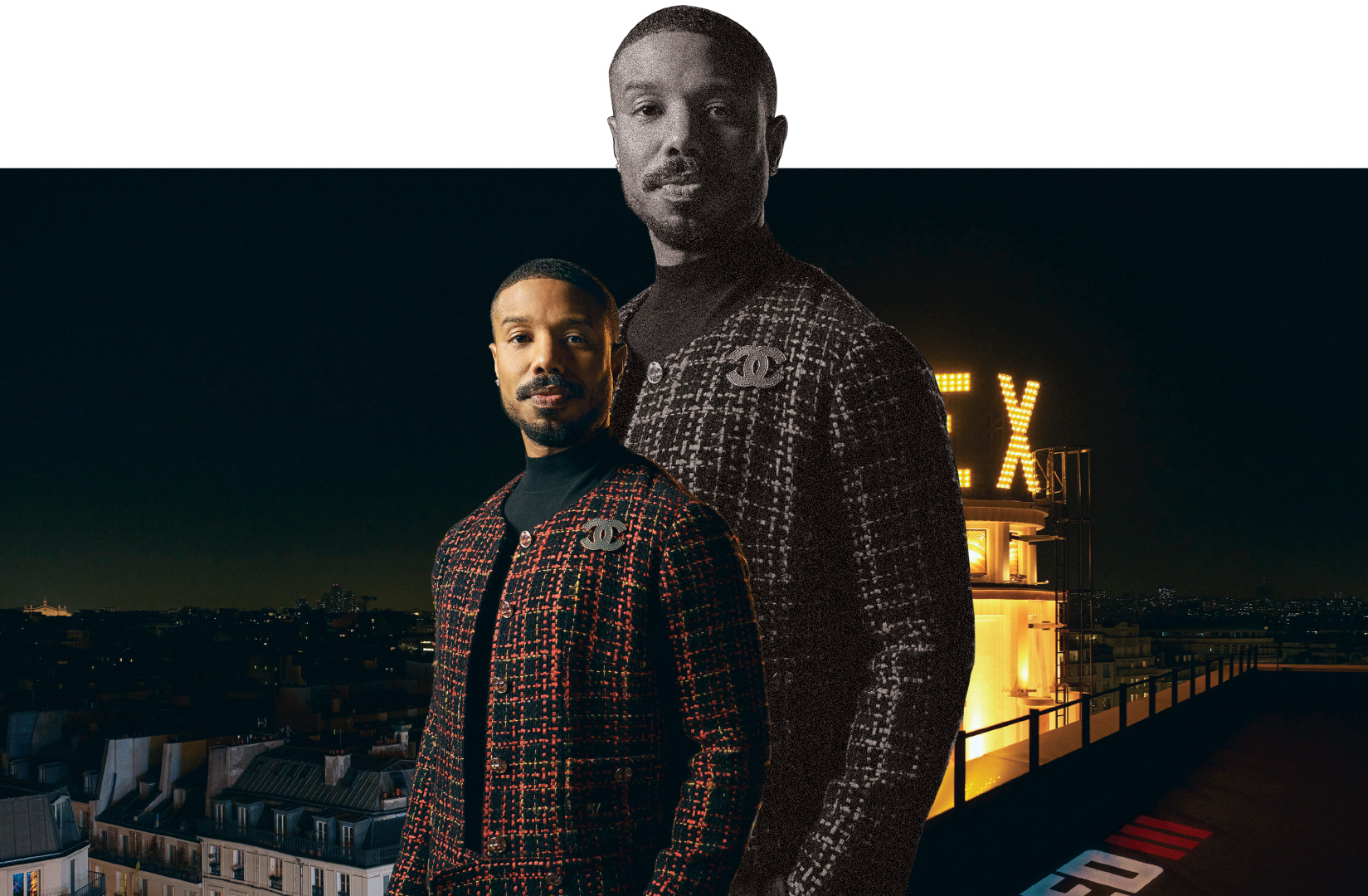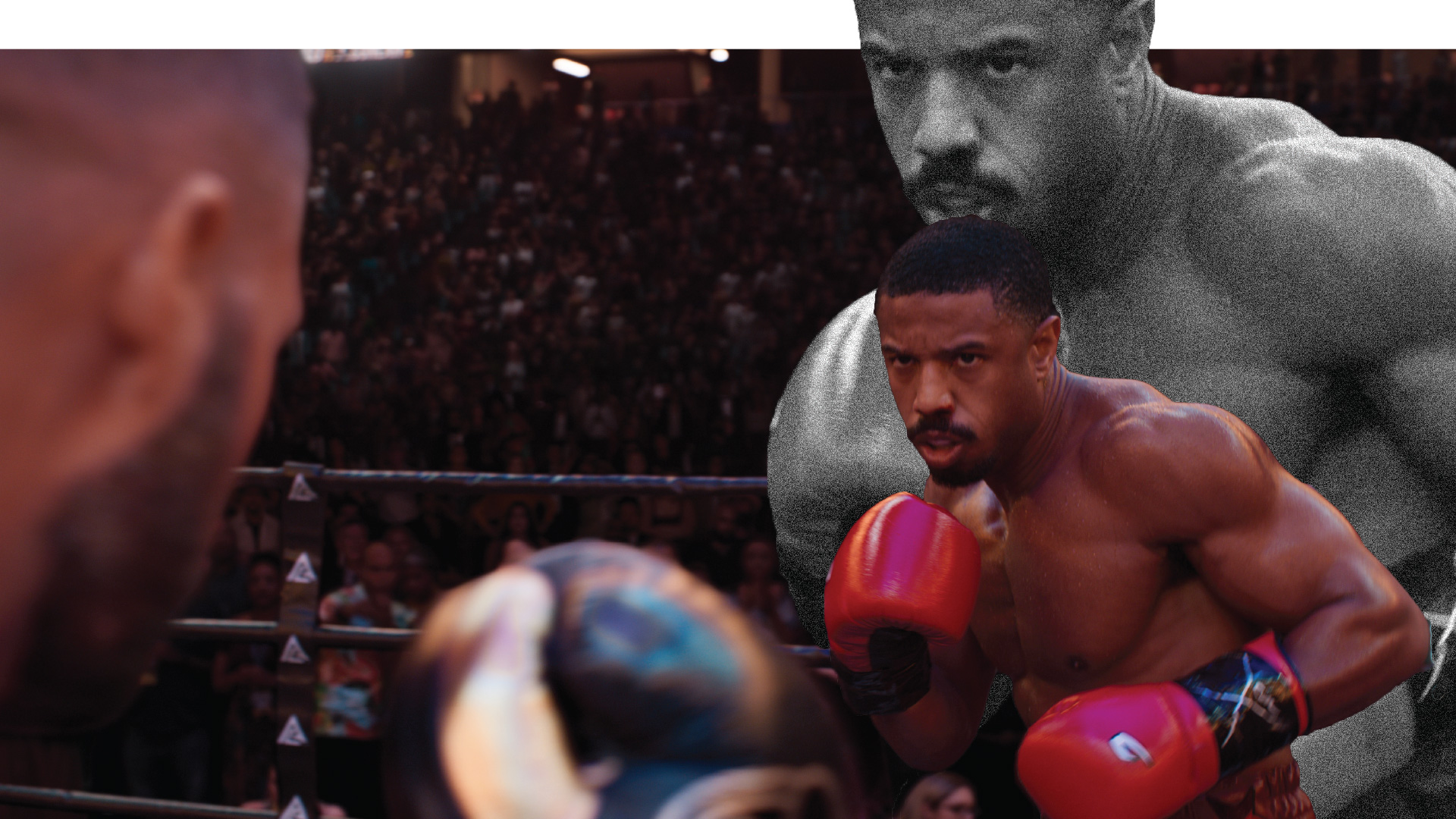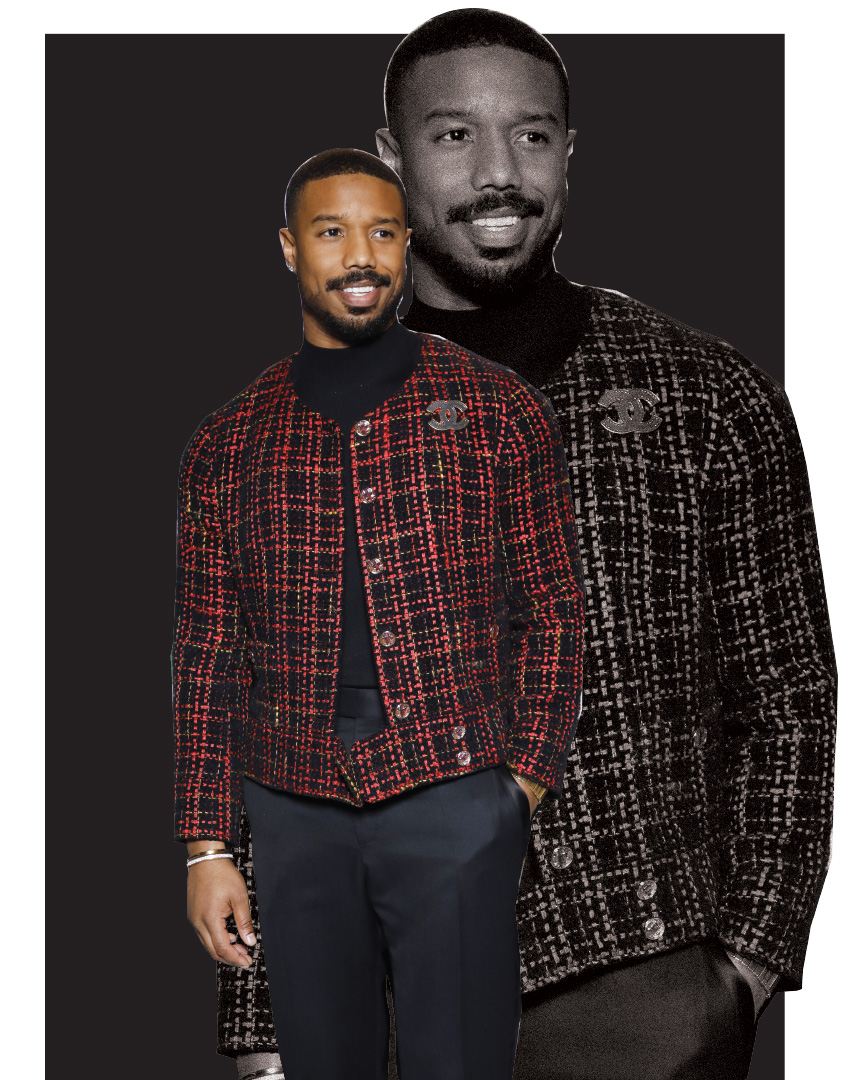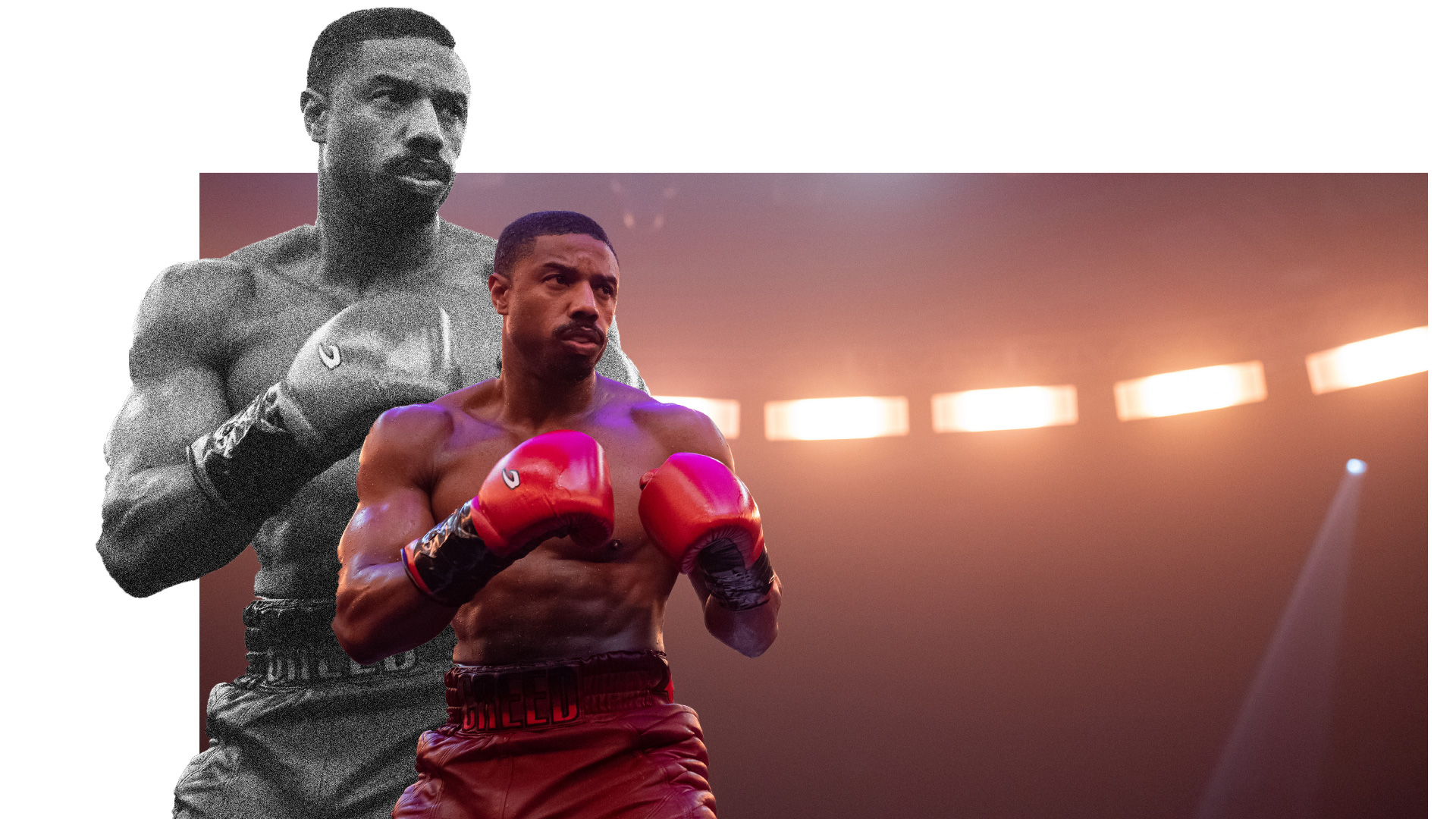The Golden Age of Michael B. Jordan
The bright lights and dazzling fanfare of cinema in Tinseltown has gone through a lot of changes since its humble beginnings in the early 1900’s. From the Silent Era—with names like Charlie Chaplin, Laurel and Hardy, and Harold Lloyd—to the Golden Age—Marilyn Munroe, Clark Gable, and Audrey Hepburn, to name a few—where big film studios like MGM, Paramount, and Warner Bros opened the doors to a world of possibilities. From the Blockbuster of the 60’s and 70’s, to the Independent Era in the 90’s, up to the current New Age cinema of big tech and even bigger budgets.
One of the biggest names floating around Hollywood these days, amongst the other heavy-weights in acting, is Michael B. Jordan. He’s one of those actors that you will never, ever forget.
Whether it’s Adonis Creed in the Creed film series, the Human Torch in The Fantastic Four, Guy Montag in Fahrenheit 451 and, of course, that iconic supervillain who tried to take over Wakanda in Black Panther, Erik ‘Killmonger’ Stevens. With the mega-success of Black Panther, Jordan has and continues to show resilience and redefine the movie industry as a true leader in whatever he has in front of him. As well as being one of TIME’s 100 Most Influential People and ranked 15th on The New York Times’ Greatest Actor of the 21st Century list, Jordan doesn’t just saunter around Hollywood waiting for award seasons to roll in. No, the man is on the front-line of social change too. When not working on his next film role, Jordan invests most of downtime championing diversity through his production company, Outlier Society Productions.
Born in Santa Ana in Orange County, California, some would mistake his name for being that of the very famous basketball player, but that wasn’t the case at all. The ‘B’ in his name actually stands for Bakari, the Swahili word for ‘good news’. His dad (Michael A. Jordan) and his mum (Donna) were described by Jordan as ‘compassionate’ yet ‘strict’ throughout his childhood, paving the way on how he’d turn out to be the grounded and humble man in the future. At only age two, his mum, dad, older brother and younger sister, packed up their lives and moved to Newark in New Jersey for a fresh start. New Jersey was a bit of a wake-up call for the family, however, as violence and drugs were at an all-time-high in the area.

In a 2014 interview with The Guardian, Jordan described Newark as being “one of the worst places in the country”, where he had seen first-hand people lose their lives. “And it could have been me…” he continued in the interview solemnly, “I could easily have been a statistic. A few different decisions and who knows what my life could have been?”
Whilst attending school and working hard to achieve excellence in his studies, Jordan surrounded himself with a tight-knit group of friends. Unfortunately, those close friends of his started dealing and dabbling in drugs and petty crimes. Reportedly, drugs “were not [Jordan’s] thing”, as his sights were set a little higher, hustling as a young model, starring in ads for big American brands like Modell’s Sporting Goods and Toys ‘R’ Us. He loved this first introduction to the camera, really getting comfortable with how he should act in front of the lens.
It was whilst at the doctors with his mum that Donna sparked up a conversation with the receptionist there. The young Jordan listened to his mum plug at her son’s talents. The conversation naturally moved to Jordan’s modelling, and the receptionist (impressed by the look of the young star) suggested that he should audition for TV. That sparked a tiny flame in Donna’s mind and she immediately became the ‘mum’ager, scouting for acting work for her son.
Fans of Jordan may think that his first foray at acting was in the first season of The Wire, where he played a young man named Wallace, caught up in the harrowing world of drug culture in the US, but that just isn’t the case. Jordan’s first on-screen role was as an unnamed Rideland kid in HBO’s American crime drama, The Sopranos. In this less-than-30-seconds scene, Jordan plays a member of a gang of three kids who are chasing and harassing a young Tony Soprano. It’s a brief scene—easy-to-miss if you’re not looking hard enough. Thank God he took the role, though. The HBO executives clearly saw something unique in his performance and cast him three years later in The Wire, where he guest starred in 13 episodes.
Jordan must have been doing something right—his talent must’ve shone through brightly. Still being driven to auditions by his mum, he won the role of Jamal in Brian Robbins’ sports comedy, Hardball, alongside Keanu Reeves. In a 2021 interview with The Hollywood Reporter, Robbins knew back then that the kid had star power.
“I remember him coming into the room and being super charismatic,” said Robbins. “He was very confident—but not arrogant—and extremely likeable.”
On a wee side note, Hardball was released around the same time as a little film franchise called The Matrix was taking over the world. Starring alongside Keanu was a massive deal for Jordan, as it truly showed him what it was like to be a grounded, kind and respectful human – these traits carrying through to his career path later in life. All the rumours of Reeves are true, as (reportedly) the kids would ‘goof around’, dodging bullets in slow motion, and consequently Keanu would join in.
“While we were in production, Keanu took the whole cast out to dinner,” Jordan told The Hollywood Reporter, “and we had a chance to meet [his The Matrix co-star] Laurence Fishburne. To this day, I still remember thinking to myself in astonishment: ‘I guess this is what movie stars do—take their casts out to dinner with other big actors.’”
By showing this act of kindness, Jordan (to this day) holds Keanu as one of the biggest influences on his professional life.
It was with the help of his role in The Wire that Jordan was cast (as a replacement to Chadwick Boseman’s character, Reggie Montgomery) in ABC’s American soap opera, All My Children.
Later starring in the supermassive 2018 superhero film, Black Panther with the late Boseman (who played the leading role as T’Challa/Black Panther in the film), the two laughed about the situation. In all reality, Boseman was fired just a week into filming the soap, because he had refused to portray the character with any racial stereotypes. They had never worked together on the set of All My Children, and little did they know all the way back in 2003 they would be going head-to-head in battle with each other 15 years later in one of the biggest films in Hollywood’s history.
“I’m younger than Chad,” Jordan reminisced with a smile, “and I was coming into All My Children fresh off The Wire—wide open, still learning. I was playing this role not knowing that a lot of the things I was going through were because of what he’d already done for me.”
In being an integral fixture in All My Children for three years, Jordan became slightly restless for missing out on other acting opportunities that he could grasp fully. It was at this exit from the soap (in which his character Reggie was killed-off in season five), that Jordan’s trajectory really started to rise, and the young actor was being offered roles and auditions left-right-and-centre. As well as still cutting his teeth with TV roles (such as CSI, Law and Order, Bones and Cold Case, to name but a few), Jordan loved most of all the thrill of the big film projects. In 2013, his first big time feature was released and thus started the Golden Age of Michael B. Jordan.

In 2009, at Fruitvale Station in Oakland, California, a young black man by the name of Oscar Grant was wrongfully killed in the early hours of New Year’s day by BART (Bay Area Rapid Transit) Police officer Johannes Mehserle. After being kneed in the head by another officer and forced to lie down, Mehserle drew his weapon and shot Grant.
It was in 2011 that Forest Whitaker’s production company found the young director, Ryan Coogler (who was a graduate student at the University of Southern California). Coogler had been studying there when news broke of Grant’s death, and he was desperate to tell Grant’s story. It was there that this young director thought of Jordan immediately.
At the time, Jordan was reported saying that he lacked a bit of confidence in his own acting ability, and was nervous at carrying the role of Oscar Grant. Luckily for us, he accepted after being convinced by Coogler.
“This was like my opportunity to really show what I could do,” Jordan said to Showbiz CheatSheet. “As a Black man at the time, there were a lot of police shootings really coming to the forefront and I felt very frustrated and angry, and didn’t really have an outlet to say how I feel and express myself. And it just so happened, perfect timing, that Ryan Coogler was developing this script around the shooting of Oscar Grant in his hometown. And it was the perfect connection. I needed him at that time and he needed me, whether we knew it or not.”
That film, Fruitvale Station, (and Jordan’s performance, of course) was heralded by critics alike and went on to win a flurry of awards from such places as the NAACP Image Awards and several at the 2015 Sundance Film Festival.
Now Coogler and Jordan, after building such a tight bond in making Fruitvale Station together, are the best of mates, and Jordan has starred in all four of Coogler’s feature films, one of which is Creed.
Released in 2015, Creed entered the Hollywood sphere of iconic sports dramas. With Jordan starring as lead, by God did it make an impact. The film was the seventh installment to the cultural phenomenon that is Sylvester Stallone’s Rocky film series. Starring the likes of Stallone himself, Tessa Thompson and Graham McTavish, the film introduces Jordan as Adonis Creed (son of heavyweight champion of the world, Apollo Creed), who unfortunately died when Adonis was younger. Adonis seeks to follow in his father’s footsteps, seeking out Rocky Balboa, and asks the retired champ to be his mentor.
Upon its release in cinemas worldwide, it grossed up to USD$173.6 million and was placed third on the box office within the first week! Creed’s influence truly drove home Jordan’s work ethic too. He’s brilliant in this ‘underdog’ role, championing the idea that success is earned not given.
Talking of such success, it was around this time that Jordan’s own production company, Outlier Society, was launched, priding itself on including diversity in all aspects of the film industry.
“Michael has become a leading voice in a new generation of talent and is creating real change in the industry,” Chairman of Warner Bros. Picture Group, Toby Emmerich said of Jordan. “His talent is undeniable, and beyond that, his commitment and conviction around representation and inclusion are inspiring—he truly walks the walk.”
Outlier Society Productions has since gone on to produce such films as Fahrenheit 451, The Liberators, gen:LOCK and Raising Dion, to name but a few.

The really cool thing about Outlier Society Productions is that it heralds a clause in an actor’s contract that requires movie producers to hire a diverse cast and crew. If the film isn’t diverse enough, the actor is within their legal rights to back out the project. Sorta like what Boseman did in All My Children with the misrepresentation of Black folks. This is a good example of Jordan striving to earn his success in a culturally changing way.
It would be remiss—almost morally wrong—not to acknowledge one particular film that Jordan was a part of during this time. The film, I might add, really showed audiences the range of talent Jordan has. Of course, I’m talking of Marvel Cinematic Universe’s Black Panther. Widely regarded as one of Marvel’s greatest villains, Erik ‘Killmonger’ Stevens was a former Navy SEAL and son of Prince N’Job (played by Sterling K. Brown). Seeking revenge for the death of his father, Killmonger returned to Wakanda and repeatedly challenged Black Panther (played by Boseman) to the bitter end. Jordan truly encapsulated that role. He reportedly went full-blown method too, and you can certainly feel it and see it. On a side note, Jordan took inspiration from Dragon Ball Z’s Vegeta to play the role.
Black Panther was also the time that both Boseman and Jordan could reconnect—after both starring in All My Children all those years ago.
“Killmonger allowed me to access the pain,” Jordan recently told Variety. “And the unapologetic frustration that I had. But then, obviously, there’s a sadness that comes along with that. I dove into that for a lot longer than I ever had before. So coming out of that [role] it was hard to want love. Because during shooting I kept myself from family and children, and away from everything that Killmonger never had.”
Making a whopping USD$1.4 billion in the box office, and stacking up the awards, the film certainly put Jordan on the map. The film made him an instant success, heralding him as one of the leaders of the New Age of Hollywood. Though his character met his untimely death in the film, Jordan returned for a brief cameo in last year’s Black Panther: Wakanda Forever.
Movie-buffs alike could create connections between Erik ‘Killmonger’ Stevens and Adonis Creed. Both, in a way, are portrayed as underdogs striving for their final goal.
Off the heels of Black Panther, Creed II was released in 2018 and garnered Jordan as a legend.
In 2020, after the death of George Floyd, Jordan attended the widespread protests for racial justice. Playing Oscar Grant in Fruitvale Station years prior must have lit a fire in his belly in that regard too. It was at this protest for George Floyd that Jordan was truly hit hard with the realisation that things needed to change in both Hollywood and wider America surrounding racial justice. In collaboration with his own Outlier Society Productions and American civil rights leader, Rashad Robinson, the Colour of Change initiative was created, outlining a way to end discrimination against Black communities. With the hashtag #ChangeHollywood becoming more and more prevalent on Jordan’s social media, Outlier Society has even adopted an inclusion rider, stipulating that the cast and crew reflect more fully on the number of women, LGBTQ+ individuals and people with disabilities in film. Jordan is a real advocate for this initiative.
“This road map is just the beginning of the journey to racial justice,” Jordan said in a statement in 2020. “We are all accomplices in the fight to transform Hollywood, and we invite content creators and industry leaders to join us in working together to #ChangeHollywood. We look forward to including a variety of voices in doing what we do best: telling authentic stories, bringing people together, partnering with influential artists, and changing the rules of the game.”
“I think we all feel like ‘underdogs’ in some type of way in life, you know?” Jordan said to the media in London’s Leicester Square at the premiere of his latest film, Creed III. “Life’s hard—we go through challenges and hardship. So when you see a character go through those same types of struggles, and they’re able to overcome them, you know, in a massive way, it’s almost like, we can do it too. That’s why there’ve been so many boxing films, and that’s why people love these movies so much.”
To be released in cinemas around New Zealand on 2nd of March, Jordan is stepping yet again into the ring as Adonis ‘Donnie’ Creed. Making his directorial debut, as well as starring in the film, Creed III tells of Adonis’ continued successful boxing career and life. His childhood friend, Damian ‘Dame’ Anderson, comes onto the scene after serving serious prison time and is eager to prove himself as a serious fighter.
“It was challenging but I never felt more alive,” Jordan said to Reuters of his directorial debut. “I had a chance to put my point of view on everything and that was really good.”
As well as reprising the role of Adonis Creed, Jordan has a lot more on his plate which we are excited about. Be it the remake of the 1999 romantic-heist film, The Thomas Crown Affair, or suiting up as the ‘black Superman’, Val-Zod in a possible HBO Max series, the man is a worker, alright. His success as one of the greatest actors around today is built on getting his hands dirty, and facing every obstacle with a ‘can-do’ attitude. For future roles, Jordan will be starring alongside Will Smith in I Am Legend 2, which will be set a decade before the events of the original 2007 post-apocalyptic film.
So it seems now we are living through the Golden Age of Michael B. Jordan. Whether it be owning every film role he tackles, or creating spaces for social and cultural change, Jordan is changing the rules and making a huge impact whilst doing it.

